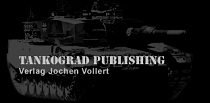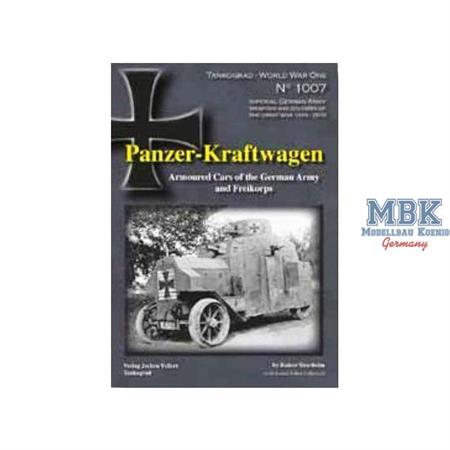Before World War One, the militaries of all powers generally observed experiments regarding armoured cars with interest, but they demonstrated great restraint when it came to adopting them in their peacetime establishments. Thus, when war came in August 1914, none of the belligerent armies was equipped with organic armoured cars.
A wartime German construction programme was slowly proceeding when the War Ministry ordered the Traffic Engineering Test Commission with executing this task. Construction contracts were eventually awarded to German manufacturers and armoured car designs were soon built, albeit in very small numbers only. In the end, the majority of German wheeled armour in the Great War would be made of captured vehicles.
This publication describes the development, design and combat use -on the Eastern and Western Front- of the three wartime German armoured car types built by Ehrhardt, Daimler and Büssing as well as the use and deployment of the many captured types manufactured by Minerva, Austin, Garford-Putilov, Lancia, Fiat, Peugeot, Packard and others that served under the Iron Cross both in the Imperial German Army in 1914-18 and later in the Freikorps of 1918-20.
This is the most comprehensive publication published on that subject so far.
On 96 pages this publication is illustrated with 152 black&white photographs.




